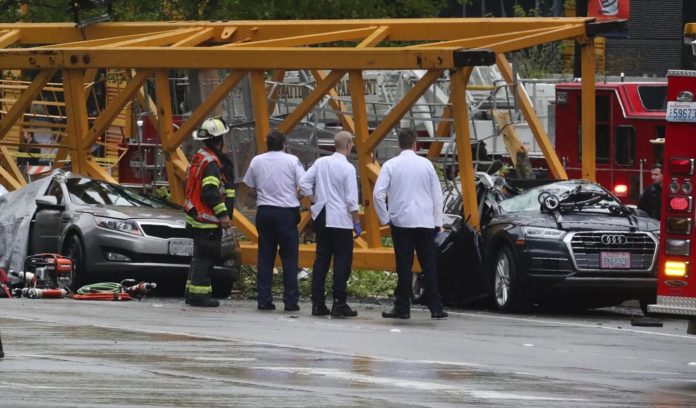

In a tragic incident that shook the heart of Seattle’s South Lake Union on April 27, 2019, the collapse of a tower crane claimed the lives of four individuals, including a promising student who grew up in South Pasadena, Sarah Pantip Wong. This event, as chronicled by her parents Andrea Wang and Henry Wong for the Seattle Times, not only brought to light the imminent dangers of tower cranes in urban centers but also exposed the inadequacies in the regulatory framework governing their safety.
In the wake of this disaster, efforts to bolster tower crane safety have gained momentum in Washington state. State legislators, led by Sen. Noel Frame and Rep. Julia Reed, have proposed House Bill 2022. This piece of legislation, which has already cleared the House of Representatives on February 9 and is currently under Senate review, introduces critical measures to bridge the existing safety gaps.
Outlined by the Seattle Times, the bill advocates for three pivotal changes. It proposes the creation of designated work zones around cranes during pivotal moments such as assembly and disassembly, complemented by an alert system for locals. It also calls for a rigorous permitting process to ensure ongoing adherence to safety standards. Lastly, it suggests the introduction of criminal penalties as a deterrent against negligence in safety practices.
Had these regulations been in effect, Sarah Pantip Wong might have been able to pursue her dream of becoming a pediatric nurse. The story of her untimely demise underscores the urgent need for robust safety regulations to protect individuals engaging with or living near construction sites.
Seattle, known for its skyline dotted with construction cranes — the highest number in the nation, according to the Seattle Times — is at a critical juncture. The legislative body’s overwhelming support for HB 2022, spearheaded by Rep. Reed, is a step in the right direction. However, the imperative now is for the Senate to collaborate with Sen. Frame to ensure the bill’s enactment, a move eagerly awaited by Gov. Jay Inslee.
The community is called upon to rally behind these reforms, advocating for a safer environment that does not compromise the growth and vibrancy of Washington’s urban landscapes. The tragic events of 2019 serve as a stark reminder of the cost of inaction, emphasizing the collective responsibility to prevent such losses in the future through comprehensive tower crane safety measures.















.png)











